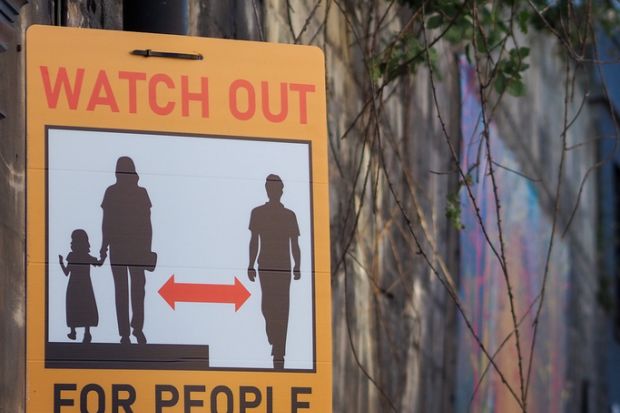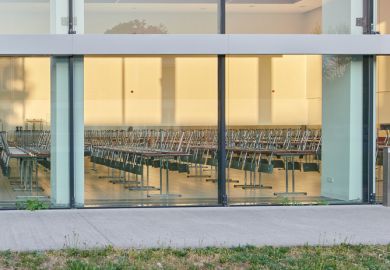During the summer, my university in the north of England has been making impressive efforts to make its campuses Covid-secure, while assessing the individual risks to every member of staff and deploying them accordingly, in a speedily revised timetable.
All this has been done in full consultation with the local branch of the University and College Union – my union – which is fully supportive of the results. Then, just as we are about to welcome our students back with confidence, the UCU general secretary Jo Grady announced to the nation that none of this should be happening at all and that all UK campuses should remain closed at least until Christmas.
Grady’s unprofessional posture is accompanied by the UCU’s official guidance on reopening university campuses. In this deplorable document, the union depicts students only as vectors of disease. Interpreting the most pessimistic elements of past advice in the most timid way possible, the UCU insists that “all university courses should be offered remotely and online, unless they involve practical training or lab work”.
At best, it adds, any campuses that do reopen should become super-protected bubbles of compulsory mask-wearing and two-metre social distancing, with students kept away from staff and and each other as far as possible. The union proposes five tests for reopening, the killer being that if infection levels rise, no matter how low the absolute level or how limited the health effects, campuses should immediately close again.
Where in this dismal landscape is our once proud commitment to our students, to our vital role in training health and education professionals, and to the value of our research? Where is our confidence in the importance of the university sector to the economy and society, especially at this time of crisis? Where is our commitment as educators and citizens to supporting our recovery from the necessary but ruinous lockdown?
Where is there any acknowledgement of the damage to students caused by the loss of their education and the social experience of university at this formative stage of their lives? Or the loss of the all-important cultural experience of overseas students? Or the entitlement of postgraduate students in particular to face-to-face supervision?
Where is the acceptance, moreover, of the fact that Covid-19 poses very little serious risk to young people, or to the majority of university staff? Or that the UK lockdown ended nearly three months ago, and that students might reasonably wonder why it should endure on campus even after younger siblings have returned to school?
The UCU leadership appears to have forgotten every word it has ever proclaimed about the value of the university experience and its members’ commitment to it. It has retreated to an instrumental view of university education as a mere transfer of information that might as well happen online, in or out of a university setting. The shielding of the workplace from all risk of disease trumps every other consideration. This is not a safe or sane position for academics to adopt.
It is also hypocritical, for we all know that if any of these costs were to be felt in academic jobs, income or pensions, the same UCU executive would be issuing red-fisted posters calling for yet another ballot for strike action against – what? A virus?
Of course we must ensure that vulnerable individuals are protected, and we need local plans to contain any resurgence of the virus. Of course we must all care for each other and behave responsibly, encouraging our students by example to do the same. But the converse of minimising the risks is that life can go on. And yes, libraries need to reopen, for browsing and reading and working, not just for the delivery of pre-ordered books in sterile wrappings. It would be wise to remind students that when we told them that they needed to read, we weren’t making it up.
Universities are facing a severe financial crisis, accompanied by a loss of confidence in their value, which feels close to a tipping point. If the UCU does not quickly recover its commitment to the value of the university experience, it will find itself with a lot more to worry about than catching a virus.
This, of course, is already the case for many of our students. Not the least of the ironies of this situation is that by the time universities have developed a vaccine for the coronavirus, most of their students may, at surprisingly little cost to their own health or to the NHS, have caught it and become immune. Then, perhaps, we can all feel a little safer.
Robert Poole is professor of history at the University of Central Lancashire.
Register to continue
Why register?
- Registration is free and only takes a moment
- Once registered, you can read 3 articles a month
- Sign up for our newsletter
Subscribe
Or subscribe for unlimited access to:
- Unlimited access to news, views, insights & reviews
- Digital editions
- Digital access to THE’s university and college rankings analysis
Already registered or a current subscriber?








